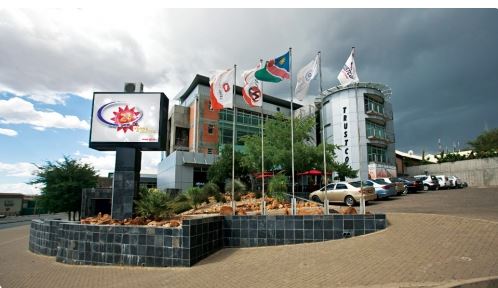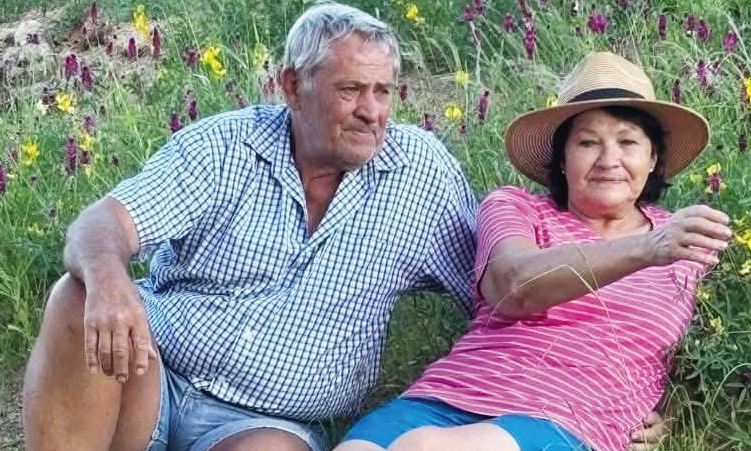YUJIANG COUNTY – Freshly tilled rice paddies seem to lap up against every building and every road in Yujiang.
The fields are dotted with farmers leading water buffalo through the mud and fog. This is Jiangxi province, China’s farming heartland and the cradle of the Communist revolution.It was also ground zero for one of the most violent tax clashes since the Communists seized power in 1949.Three years ago, irate peasants collided with government troops over a crippling tax burden.Two farmers were killed and more than 40 villagers and security officers were injured when authorities went in to put down the unrest in Yuntang village.These days, the farming community is quiet.”That was the past,” said farmer Zhou Yongfa, crossing a road from one of his rice fields to another, his ox grazing in the rain nearby.”It’s not like that any more.”The fire has been put out in this corner of Jiangxi, the southern province where the Communist Party experimented with land reform and honed its guerrilla warfare tactics under a short-lived Soviet republic in the late 1920s and early 30s.But China’s leaders, fearful of similar flare-ups among its 800 million peasants, have now made easing the repressive tax burden on the countryside a top priority.At the annual session of parliament in March, Premier Wen Jiabao pledged incremental reductions of agricultural taxes to zero within five years to help boost peasant incomes and close the widening urban-rural income gap.The decision reflects the “men of the people” image that Wen and President Hu Jintao have cultivated since taking power a year ago and dovetails with their decision to seek equitable rather than breakneck economic growth.’A PITTANCE’Analysts see the move as largely symbolic.”When you are talking about numbers, we have to realise this is just a kind of small factor in terms of real money,” said Li Ping of the Seattle-based Rural Development Institute.Take Zhou Qingyou, who grows corn on five mu (5,75 hectares or 14,2 acres) of land in the northern province of Hebei.The reduction would save him just 10 yuan (US$1,20) this year.”I can’t even buy a bottle of Chinese wine with 10 yuan,” he said.The tax cut, which would start in some northeastern provinces this year, only addresses part of the problem in the countryside.Levies have mushroomed after fiscal decentralisation in the mid-1990s drove rural governments to plug funding gaps.The burden from the proliferation of fees and taxes for everything from roads to schools to waterworks, coupled with flooding in the late 1990s, led to revolts like that in Yuntang.Farmers refused to pay and barred the road to the village, prompting local officials to dispatch security forces.Such unrest has become common in rural China.Angry farmers in Hebei took a government official hostage in January, accusing him of corruption.They let him go only after authorities freed six villagers arrested earlier for attacking tax collectors.Fearful of more trouble, China is targeting areas like Yujiang in northern Jiangxi to roll out a scheme piloted in Anhui province that axes fees and replaces them with a flat tax.”The tax-for-fees reform has already started here and it is helping,” Yujiang rice farmer Wei Wenxin said.”As for the agricultural tax cut, we’ll just have to wait and see.”But the Anhui scheme has its limits.The Rural Development Institute estimates that, when it is rolled out nationwide, annual savings would amount to only 40 yuan per peasant.Meanwhile, average urban incomes have swelled to more than three times those in the countryside and the gap is widening, the institute said.In its latest move to boost the rural sector, the government has just announced 940 million yuan (about N$701 million) in subsidies to encourage rice farming in seven provinces, including Jiangxi.It also unveiled steps to open the grain market to enterprises other than state-owned granaries in hopes of raising production.SYMBOLICThe urgency is understandable.Tax rebellions are a prominent feature on China’s historical landscape, but some analysts regard the situation as more volatile than in the past, when the government provided far fewer services to the peasantry.”The fact that the government today is so much more ambitious means that it is in a position where it needs taxes.It’s hungry for taxes in ways that were less true in an earlier period,” said Elizabeth Perry, a Harvard University expert on Chinese protests.”It’s similar in the sense that there are many, many incidents of tax protests, but the political structure in which it’s embedded is also different, and in some ways may make it a more serious problem now than was often the case in the past.”Zhao Shukai, a researcher with the State Council, advocated in a recent article that the government should, in effect, roll back the decentralisation of the 1990s.”Townships and villages should not have any responsibility to meet economic growth goals, they should not be responsible for their own survival finances, and they should definitely not have the ability to expand and capture resources,” he wrote in the journal ‘Strategy and Management’.Perhaps more than anything, Beijing’s renewed show of commitment in parliament this year carries symbolic weight.”It shows the government’s will, and it represents a kind of a signal to local governments,” said Li.But a final resolution to the problem remains elusive, and in the meantime, Beijing will have to keep dousing the flames of peasant unrest as they flare up.Back in Yujiang County, farmer Zhou said the violent clash in Yuntang had turned out to be a good thing.”They don’t pay taxes any more,” he said.”Plus, they got a good road and have electricity now.”- Nampa-ReutersThis is Jiangxi province, China’s farming heartland and the cradle of the Communist revolution.It was also ground zero for one of the most violent tax clashes since the Communists seized power in 1949.Three years ago, irate peasants collided with government troops over a crippling tax burden.Two farmers were killed and more than 40 villagers and security officers were injured when authorities went in to put down the unrest in Yuntang village.These days, the farming community is quiet.”That was the past,” said farmer Zhou Yongfa, crossing a road from one of his rice fields to another, his ox grazing in the rain nearby.”It’s not like that any more.”The fire has been put out in this corner of Jiangxi, the southern province where the Communist Party experimented with land reform and honed its guerrilla warfare tactics under a short-lived Soviet republic in the late 1920s and early 30s.But China’s leaders, fearful of similar flare-ups among its 800 million peasants, have now made easing the repressive tax burden on the countryside a top priority.At the annual session of parliament in March, Premier Wen Jiabao pledged incremental reductions of agricultural taxes to zero within five years to help boost peasant incomes and close the widening urban-rural income gap.The decision reflects the “men of the people” image that Wen and President Hu Jintao have cultivated since taking power a year ago and dovetails with their decision to seek equitable rather than breakneck economic growth.’A PITTANCE’Analysts see the move as largely symbolic.”When you are talking about numbers, we have to realise this is just a kind of small factor in terms of real money,” said Li Ping of the Seattle-based Rural Development Institute.Take Zhou Qingyou, who grows corn on five mu (5,75 hectares or 14,2 acres) of land in the northern province of Hebei.The reduction would save him just 10 yuan (US$1,20) this year.”I can’t even buy a bottle of Chinese wine with 10 yuan,” he said.The tax cut, which would start in some northeastern provinces this year, only addresses part of the problem in the countryside.Levies have mushroomed after fiscal decentralisation in the mid-1990s drove rural governments to plug funding gaps.The burden from the proliferation of fees and taxes for everything from roads to schools to waterworks, coupled with flooding in the late 1990s, led to revolts like that in Yuntang.Farmers refused to pay and barred the road to the village, prompting local officials to dispatch security forces.Such unrest has become common in rural China.Angry farmers in Hebei took a government official hostage in January, accusing him of corruption.They let him go only after authorities freed six villagers arrested earlier for attacking tax collectors.Fearful of more trouble, China is targeting areas like Yujiang in northern Jiangxi to roll out a scheme piloted in Anhui province that axes fees and replaces them with a flat tax.”The tax-for-fees reform has already started here and it is helping,” Yujiang rice farmer Wei Wenxin said.”As for the agricultural tax cut, we’ll just have to wait and see.”But the Anhui scheme has its limits.The Rural Development Institute estimates that, when it is rolled out nationwide, annual savings would amount to only 40 yuan per peasant.Meanwhile, average urban incomes have swelled to more than three times those in the countryside and the gap is widening, the institute said.In its latest move to boost the rural sector, the government has just announced 940 million yuan (about N$701 million) in subsidies to encourage rice farming in seven provinces, including Jiangxi.It also unveiled steps to open the grain market to enterprises other than state-owned granaries in hopes of raising production.SYMBOLICThe urgency is understandable.Tax rebellions are a prominent feature on China’s historical landscape, but some analysts regard the situation as more volatile than in the past, when the government provided far fewer services to the peasantry.”The fact that the government today is so much more ambitious means that it is in a position where it needs taxes.It’s hungry for taxes in ways that were less true in an earlier period,” said Elizabeth Perry, a Harvard University expert on Chinese protests.”It’s similar in the sense that there are many, many incidents of tax protests, but the political structure in which it’s embedded is also different, and in some ways may make it a more serious problem now than was often the case in the past.”Zhao Shukai, a researcher with the State Council, advocated in a recent article that the government should, in effect, roll back the decentralisation of the 1990s.”Townships and villages should not have any responsibility to meet economic growth goals, they should not be responsible for their own survival finances, and they should definitely not have the ability to expand and capture resources,” he wrote in the journal ‘Strategy and Management’.Perhaps more than anything, Beijing’s renewed show of commitment in parliament this year carries symbolic weight.”It shows the government’s will, and it represents a kind of a signal to local governments,” said Li.But a final resolution to the problem remains elusive, and in the meantime, Beijing will have to keep dousing the flames of peasant unrest as they flare up.Back in Yujiang County, farmer Zhou said the violent clash in Yuntang had turned out to be a good thing.”They don’t pay taxes any more,” he said.”Plus, they got a good road and have electricity now.”- Nampa-Reuters
Stay informed with The Namibian – your source for credible journalism. Get in-depth reporting and opinions for
only N$85 a month. Invest in journalism, invest in democracy –
Subscribe Now!










